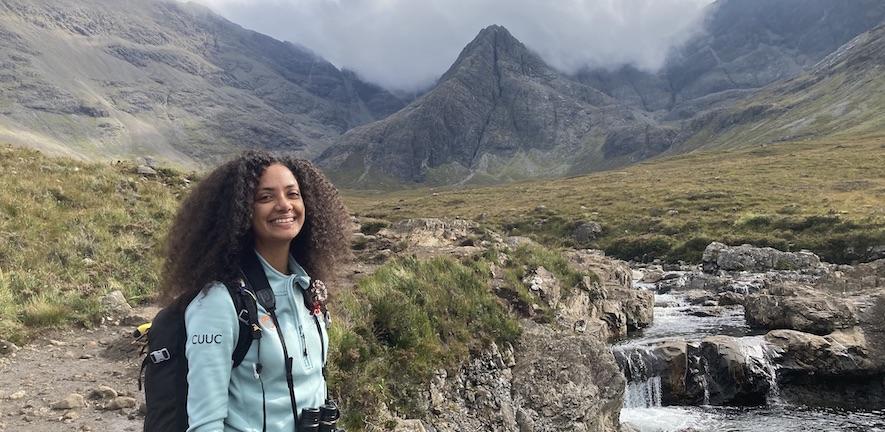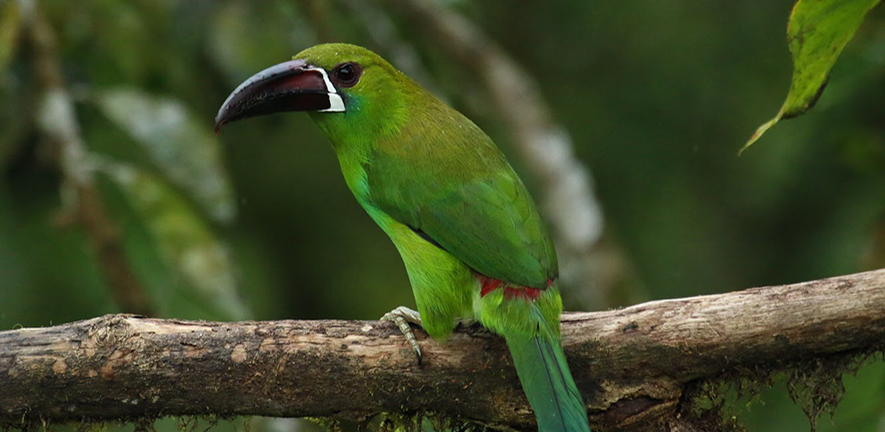
Information
£28,054 per course
Applications for the 2023-24 course are now open, closing 1 December 2022
The Cambridge Masters in Conservation Leadership is a ground-breaking course that equips students with the applied leadership and management skills needed to create positive change in conservation. A unique feature of the course is its delivery by a collaboration between the University of Cambridge and nine leading conservation organisations, which together comprise the Cambridge Conservation Initiative. The Masters in Conservation Leadership is designed for applicants with at least three years of relevant professional experience and clear leadership potential.
The curriculum combines taught modules with hands-on experiential learning through a group consultancy and an individual professional placement hosted by a conservation organisation. All students receive 1:1 mentoring from a senior leader. The course is based in the David Attenborough Building, in which it has its own dedicated teaching space, offering students outstanding facilities and constant access to world-leading conservation practitioners and researchers.
The Masters in Conservation Leadership aims to admit around 20 students each year. The course is designed for graduates with specific knowledge and work experience in conservation, public policy, business strategy or the voluntary sector, anywhere in the world. The course is aimed at both experienced mature graduates with experience of conservation work in NGOs, government or the private sector, and highly-motivated younger graduates of leadership potential with at least three to five years of relevant experience.
Graduates join a global alumni network from over 80 countries who receive ongoing support from the course team. Alumni are already making a global impact for conservation.
Learn more and apply at: https://www.cl.geog.cam.ac.uk/.
The conservation organisations in CCI working with the University in the design and delivery of this course are:
- BirdLife International
- British Trust for Ornithology (BTO)
- Cambridge Conservation Forum (CCF)
- Fauna & Flora International (FFI)
- International Union for Conservation of Nature (IUCN)
- The Royal Society for the Protection of Birds (RSPB)
- TRAFFIC
- Tropical Biology Association (TBA)
- The UN Environment World Conservation Monitoring Centre (UNEP-WCMC)
Within the University, the Department of Geography shares teaching with five other departments within CCI, which makes up the University of Cambridge Conservation Research Institute:
- Cambridge Institute for Sustainability Leadership (CISL)
- Cambridge Judge Business School
- Land Economy
- Plant Sciences
- Zoology
The CCI partnership of University departments and practitioner organisations allow the course to offer a truly interdisciplinary perspective on the management and leadership challenges that conservation faces, and that is not available in any similar course offered elsewhere. The course also draws on expertise from a variety of external organisations, individuals and University departments to give the best teaching available, each year offering the experience of over 60 individuals across the different elements of the course.
Study Overview
Students come from a very diverse set of backgrounds and from all over the world. With around 20 students joining the course each year, inter cohort bonds become very strong and this peer relationship is seen as one of the most valuable elements of the programme. Networking and bonding with classmates is one of the main goals of the residential field trip which takes place early in the academic year, usually to the Norfolk broads
The structure of the course takes students on a journey through the year from understanding themselves as leaders, through leading people and organisations and finally to leading change in wider society, which is the ultimate aim of conservation. The course starts with a focus on interactive seminars in the classroom and then gradually transitions to pure experiential learning, culminating in the individual Professional Placement.
The taught modules are structured in the following way:
Taught modules
CL101 Conservation Leadership Problems and Practice
This module introduces conservation leadership in theory and practice, ensuring that students have a shared understanding of the main drivers of biodiversity loss today.
CL102 Leading Self
This module aims to equip students with personal resilience, reflexive practice, cultural awareness and career planning abilities.
CL103 Leading People and Organisations
This module aims to provide students with the tools to lead people and organisations, focussing on strategic planning, human resources, fundraising and project management.
CL104 Innovation for Conservation Leadership
This module aims to provide future conservation leaders with skills to manage, innovate and be entrepreneurial. It includes an intensive group consultancy project, undertaken with one of the CCI partner organisations.
CL105 Leading Systems
This module aims to help students understand how to bring about change in the wider world through incentives, communication, governance and other tools.
Professional placements
A central component of the Masters is the professional placement with an organisation engaged in conservation practice and/or research. Students work on a specific project which addresses a carefully defined conservation leadership challenge.
Examples of placement topics
- Improving the quality and type of information shared between conservation organisations, Indigenous Peoples and Local Communities (IPLCs) and other actors – hosted by Fauna and Flora International
- Assessing the Role of Nature Tourism in Enhancing Resilience of Coastal Communities: A case study on mangrove tourism in the Philippines – hosted by UNEP-WCMC
- Understanding the effects of political change on the implementation of projects on combatting illegal wildlife trade in Central Asia – hosted by Fauna and Flora International
- Turning the Tide: Enhancing Access To Seagrass Blue Carbon Financing to Facilitate Coastal Community Resilience – hosted by Blue Ventures
- Expansion of youth leadership in BTO and the wider environmental sector – hosted by BTO
- Ecotourism in the post-COVID-19 era for the world’s largest Partnership for nature – hosted by BirdLife International







